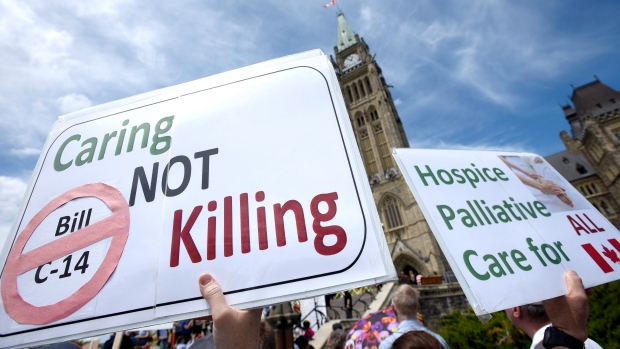In 2015, the Supreme Court declared the existing absolute ban on physician-assisted death unconstitutional in the landmark case, Carter v. Canada. In this case, two women, both of whom suffered from degenerative diseases, argued that their inability to access physician-assisted death was grounds for discrimination because neither had the physical ability to commit suicide. Although the Liberal government’s recent Bill C-14, referred to as the Assisted Dying Bill, responds directly to this decision, it faces criticism for ignoring some of the basic conditions set by the Court in the Carter decision. Despite opposition from the Senate, the House of Commons has yet to concede (as it should) that Bill C-14 remains too restrictive.
Presently, C-14 only grants exemption from prosecution to physicians with terminally or irremediably ill patients expected to die from natural causes. The Supreme Court, meanwhile, ruled that any competent adult with intolerable pain and enduring suffering—with no restriction that he or she should already be dying—should have the right to access physician-assisted death. The bill thus excludes non-terminally ill persons, such as the physically disabled or paralyzed—many of whom feel that being expected to die anyway should not be the sole criterion for the service. As the Court ruled in the Carter decision, terminally ill patients are simply not the only patients who should be able to exercise self-determination. The government should therefore revise C-14 to accommodate this fact.
On one hand, the bill’s condition of terminal illness represents a precautionary limit. If one is expected to die after a period of suffering, one is in little danger of changing his or her mind, especially given that the alternative is a quick and painless procedure. However, that is precisely the problem—it does not represent enough of a choice. The process of assisted death is predicated on a desire and a willingness to end one’s own life. The fact that one will likely die anyway is sufficient, but not necessary, to motivate that desire. Assisted dying is supposed to allow a patient to exercise his or her autonomy in the face of incredible suffering, but limiting the service to those who are going to die anyway does nothing to encourage that autonomy.
While some fear that allowing assisted death for non-terminally ill patients will lead down a ‘slippery slope’ of medical malpractice, widening Bill C-14’s eligibility criteria will have far less consequential results for a major reason: C-14 would still only provide patients the right to request death, but not a service of ‘death-on-demand.’ The Court ruled that physicians are capable of assessing patients’ ability to consent. Moreover, physicians can, importantly, refuse to perform the service out of principle. Whether physicians will at any point be mandated to comply with death requests was left unanswered by the Supreme Court; however, this should ultimately be left to the discretion of Canada’s medical institutions.
Bill C-14 reflects restraint in both the number of people it applies to and the controversy it hopes to avoid by limiting its own usage. Nevertheless, at the same time, the Carter ruling is currently the final word on assisted death: Any legislation set forth to entrench its conclusions should, at the very least, not take backward steps in a misguided attempt to play it safe. Given that the government has now decided to move forward with drafting a law on assisted dying, it must acknowledge the fact that terminal illness should not represent the sole condition in which one suffers enough to warrant a right to die.







